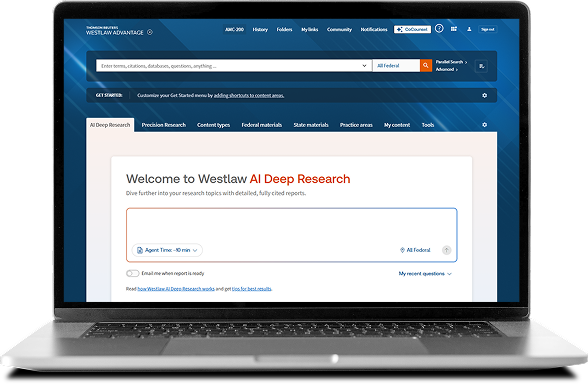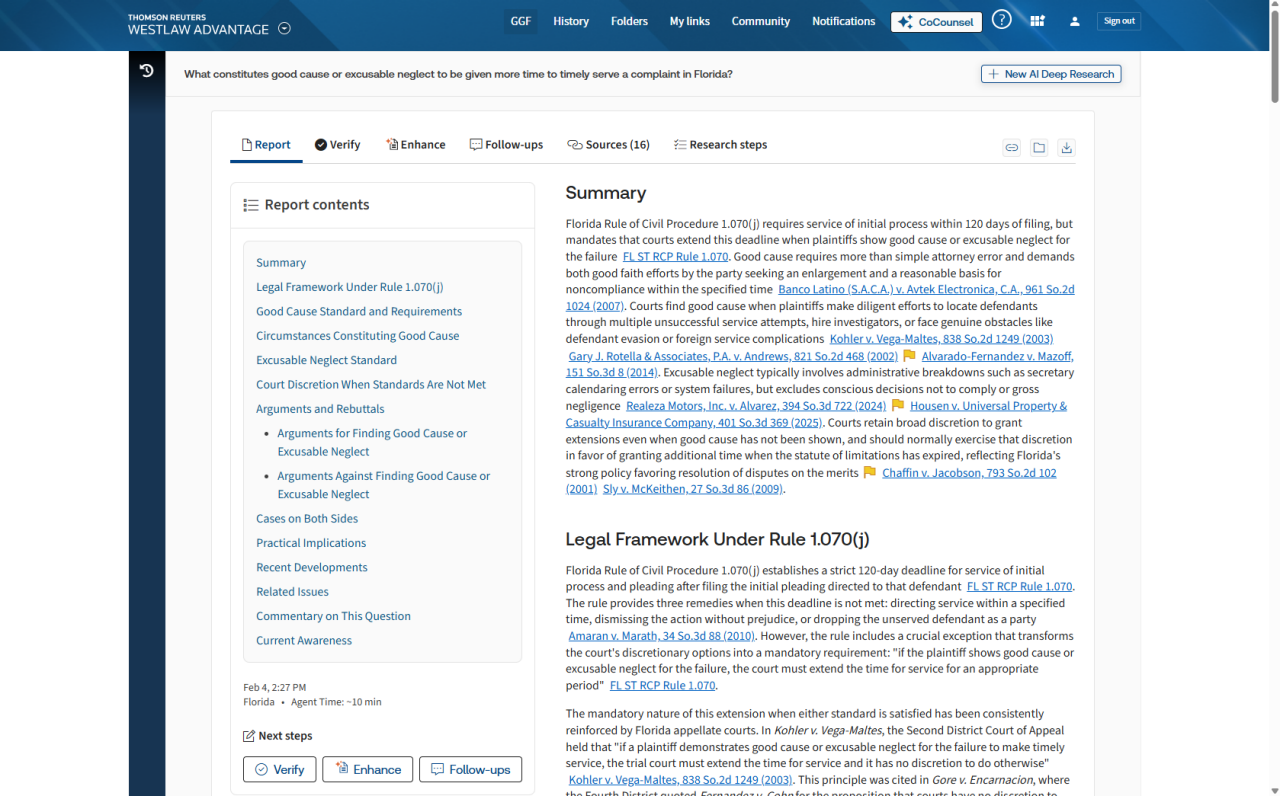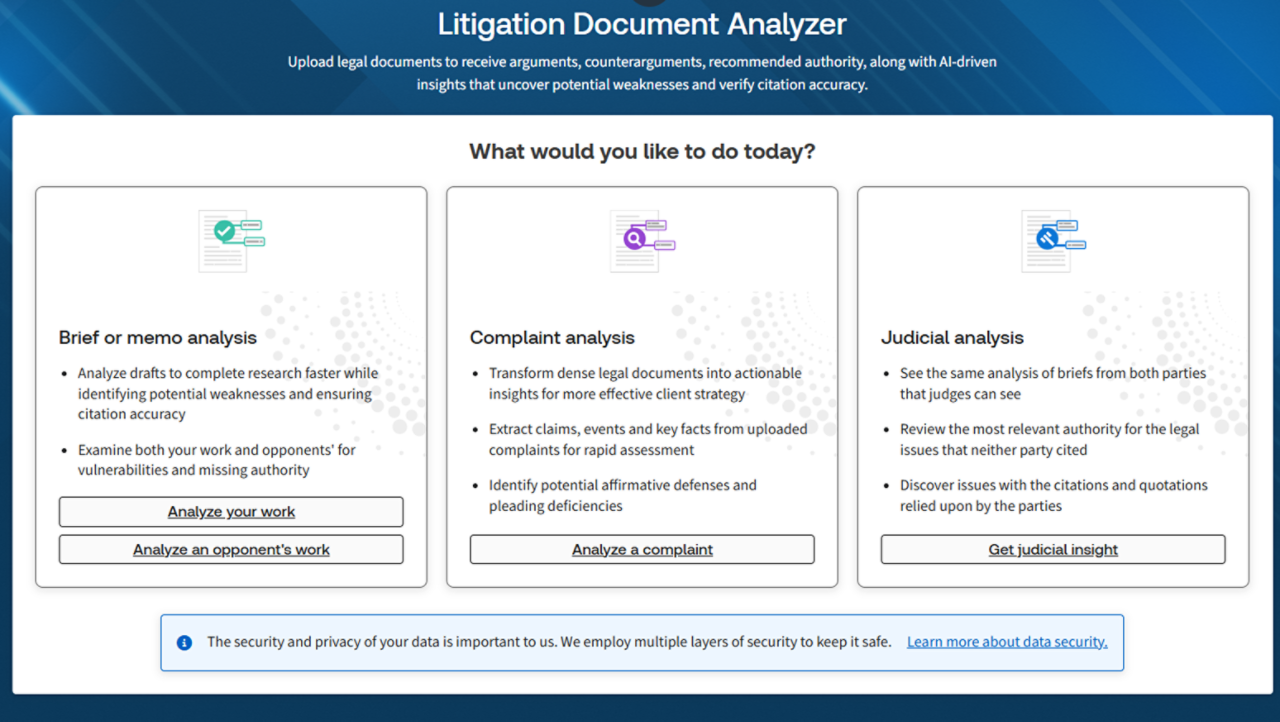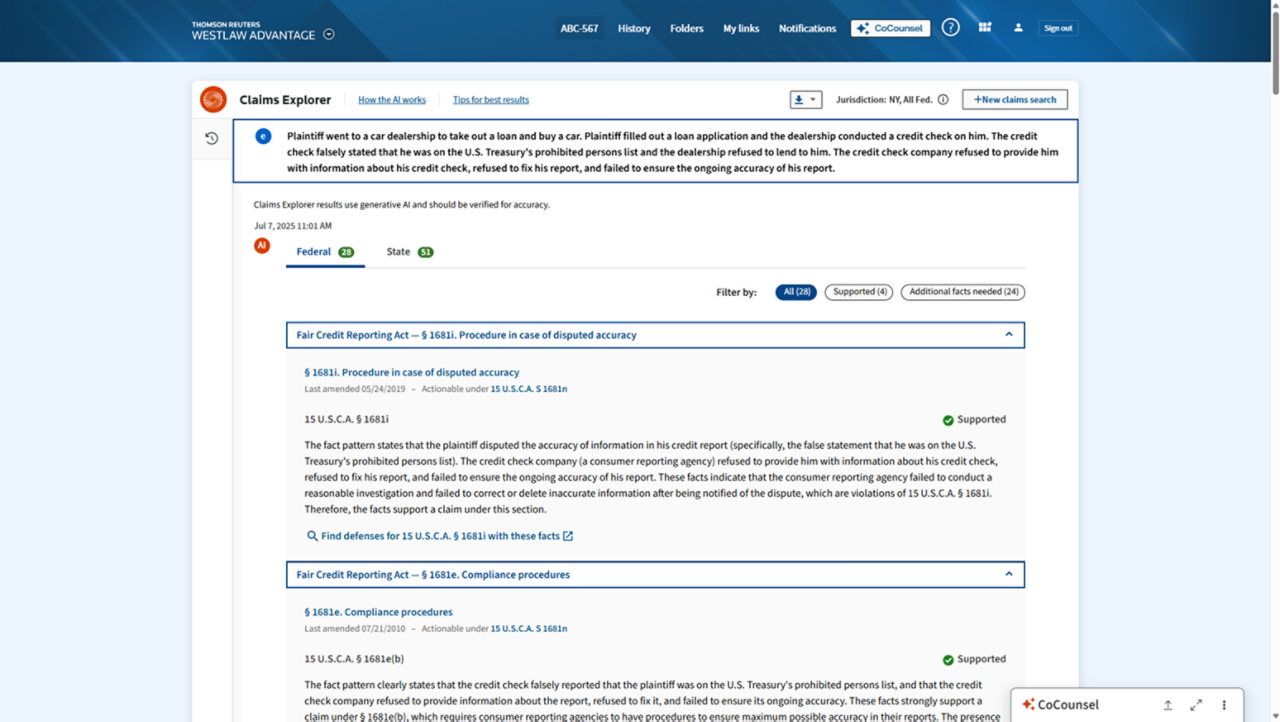AI legal research tool
Fast-track your legal research with Westlaw Advantage
Gain deep insights and move seamlessly from research to strategy with the combined power of agentic AI and industry-leading content

Complete comprehensive, verifiable legal research with powerful tools

Move past basic search — get actionable answers with Deep Research
Deep Research works like an expert legal researcher, using agentic AI to plan and perform thorough investigations into your legal questions. It examines every aspect, shows you its research process clearly, and delivers a complete report with trusted source references—helping you find reliable information and insights that could otherwise be overlooked.
Explore more features
Have questions?
Contact a representative
Go beyond citation checks with Litigation Document Analyzer
Gain deep insights into your litigation documents that reveal potential mischaracterizations, hallucinated cases, and opposing arguments. Litigation Document Analyzer delivers comprehensive analysis to help you build stronger arguments and outmaneuver opposing counsel.
Explore more features
Have questions?
Contact a representative


Simplify claims research with Claims Explorer
Use AI to help you find the strongest claims for your matter and avoid missing those that are relevant to your case. Simply enter the facts of your case and receive a list of claims to consider with Claims Explorer.
Explore more features
Have questions?
Contact a representative
A solution for every legal professional
Law firms
Streamline complex legal research, accelerate analysis, and ensure your arguments are always backed by the latest, most reliable law.
Corporate legal departments
Quickly assess liability, survey laws across jurisdictions, and advise your organization with the confidence that comes from comprehensive, accurate research.
Courts and government agencies
Rely on the same trusted platform used by 94% of state courts — and courts across the U.S. federal court system — for authoritative answers and up-to-date legal content.
Transform your legal research workflows
Move from research to results — faster and smarter
Get the answers and strategic insights you need in real time with unmatched transparency so you can act decisively, knowing every angle is covered. Westlaw Advantage combines the latest in agentic AI with expert legal content, empowering you to build stronger cases with less manual effort.
48,000+
law firms and legal departments rely on Westlaw, including 80% of the Am Law 100.
6,000+
state government agencies — including courts in 94% of U.S. states — trust Westlaw.
Frequently asked questions
Westlaw Advantage applies advanced agentic AI to formulate multistep legal research, leveraging trusted Westlaw content and proprietary tools to deliver comprehensive, transparent, and actionable answers.
Westlaw Advantage combines industry-leading editorial content, exclusive research tools, and advanced AI. Hundreds of attorney-editors maintain legal content to ensure unmatched accuracy and depth.
Yes. Litigation Document Analyzer goes beyond citation checks to identify mischaracterizations of the law, analyze arguments, and provide concise summaries to help you respond effectively.
Westlaw is trusted by law firms, corporate legal departments, courts, and government agencies — including 94% of U.S. state courts and the entire federal court system.
Yes. Westlaw Advantage offers comprehensive training resources and dedicated support to help you get the most from your subscription.
Westlaw Advantage is a transformative legal research solution that combines the capabilities of agentic AI with industry-leading legal content. With its Deep Research functionality, Westlaw Advantage operates like an expert researcher, providing you with accurate information so you can move quickly from research to strategy.
Westlaw Advantage and Westlaw Edge with AI-Assisted Research both provide accurate and trusted answers to your legal questions based on expert legal content. Westlaw Advantage takes things a step further by employing agentic AI to conduct multistep processes without being prompted.
Questions about Westlaw Advantage? We're here to support you.
888-728-7677
Call us or submit your email and a sales representative will contact you within one business day.
Contact us
